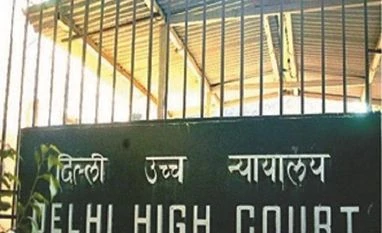The Delhi High Court Tuesday referred a fresh plea challenging the Delhi government's new Excise Policy 2021-22 to a bench which is already hearing another petition on the issue.
The fresh petition has challenged the policy
on the ground that grant of 32 zonal licences for sale of Indian and foreign liquor was illegal and arbitrary.
When the matter came up for hearing, a bench of Justices Vipin Sanghi and Jasmeet Singh said a similar plea was being heard by the bench headed by the Chief Justice which had declined to grant any interim relief at this stage and propriety demands that this bench should not hear the petition.
On the request of the counsel for the petitioner, the court listed the matter before the bench headed by the Chief Justice for Wednesday.
The court was hearing a petition by Ashiana Towers and Promoters Pvt Ltd, seeking to quash the June 28 e-tender notice of Delhi government, prescribing the procedure to be followed for inviting zone wise electronic bids for grant of 32 zonal licences of retail vends of liquor for supply of Indian and foreign liquor brands in the national capital.
The plea challenged the Delhi Excise Policy 2021-22 alleging that it was illegal, unfair, arbitrary and violative of the Delhi Excise Act, 2009.
The Delhi government was represented through standing counsel Santosh Kumar Tripathi.
More From This Section
On Monday, a bench of Chief Justice D N Patel and Justice Jyoti Singh had refused to stay the new Excise Policy which, according to retail shop owners, will lead to cartelisation.
The court had issued notice to the Delhi government on the petition and stay application and asked the authorities to respond to it while listing the plea for August 9.
The plea was filed by Readymade Plaza India Pvt Ltd, a group of retail liquor vendors who said they were running retail liquor vends in Delhi for the past 15 years.
Senior advocate Mukul Rohatgi, representing the petitioner, had said by the new Excise Policy, Delhi will be divided into 32 zones and a person can bid for two zones and the policy will lead to complete monopoly of the few big players.
All small retail vendors are left out. The entire thing is monopolised by the Delhi government for big people. This is the complete exclusion of small people who were having licences for the last various years. Cartelisation is eminent here, he had argued.
The counsel had said the minimum reserved price for one zone licence is around Rs 200 crore due to which the existing retail vendors are completely out of competition.
The plea had said the respondents divided Delhi in 32 zones, having 9-10 wards in each zone, for the purposes of issuance of liquor licence. Respondents have also introduced a new category of zonal licence, L-7Z, whereby holders of these licences shall run the retail vends. The scheme of the impugned Excise Policy is such that one L-7Z licence for each zone shall be granted and licence holder has to mandatorily run 18 retail vends.
)